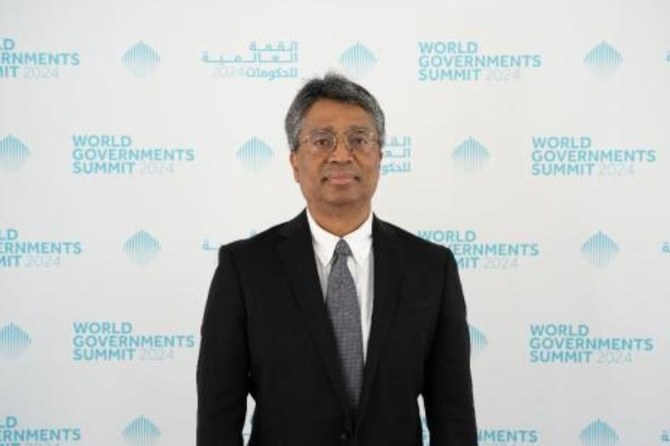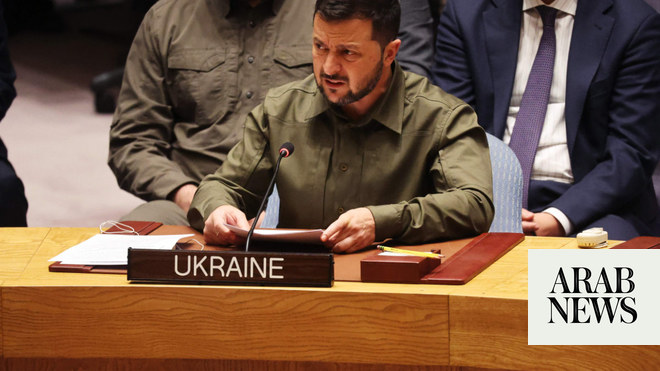
This veto power has prevented a Gaza ceasefire and not helped to solve world conflict, says Prof. Ashok Swain
Democracy in Western societies ‘almost dead’ and leaders are dividing people for political gain
DUBAI: The veto power that some nations have at the UN Security Council must be democratized to allow other countries to participate in vital decision-making on world affairs, says a conflict-resolution expert.
Speaking to Arab News on Wednesday at the World Governments Summit in Dubai, Ashok Swain, professor of peace and conflict research at Uppsala University, said giving a few countries the power to stop the UN Security Council from taking decisions has deemed the body “useless” in ensuring a ceasefire in Gaza.
“We cannot really at this point in time give the world security to the whims of one or two countries in the UN Security Council, which has the veto power.”
He said a two-thirds majority vote in the UN General Assembly should be allowed to override the veto of countries in the security council.
Last year, the US vetoed a resolution put forward at the Security Council, calling for an immediate humanitarian ceasefire in Gaza despite repeated warnings from the UN Chief Antonio Guterres of an impending “humanitarian catastrophe.”
“There is an error when the secretary-general of the UN is almost begging the UN to do something and the security council doesn’t agree to it. I think if the security council and secretary-general are not on the same page, how do you expect international organizations to deliver?”
Swain, who also serves as UNESCO Chair on International Water Cooperation at Uppsala University, said that democracy in Western societies is “almost dead.”
While Western democratic ideals have triumphed in the past, including contributing to the end of the Cold War, some leaders in the West misuse the word democracy for their own political gain, he added.
He said using the term in the context of the 18th or 19th centuries no longer works because societies have changed. Leaders must rearrange their priorities and direct their efforts to better serve their citizens, help the poor and solve critical world issues instead of waging wars.
Instead, Swain noted that some governments have been using their versions of democracy to divide societies.
“To win the elections, leaders are dividing the society between different communities, between different religious groups, and different ethnic groups. Actually, those elections are being fought not on the basis of what the policies they have been successful at, what kind of progress they have brought to the country, or to people or to the society in general, but based on dividing the society.”
The US, which is supposed to be the leader of the democratic free world, has lost “every moral right to call or take the stance of democracy” for failing to stop the war on Gaza, he added.
Swain said leaders must prioritize solving critical issues facing the world including civil wars, climate change, water scarcity, disease, income inequality, poverty and hunger. To achieve this they first need to stop all wars.
He said he was “shocked” at the “no anti-war moment” in the context of the Russia-Ukraine war.
“When the countries were going to war, no one really was looking at the repercussion. They were only talking about the nuclear bombs being used as if it is something of a game.”
He said rising tensions between the US and China were not based on “fighting over either capitalism or communism” but over what constitutes democracy as opposed to authoritarianism.
Without unity between China and the US, the world would face difficulties tackling vital challenges like climate change, he added.
Swain stressed that countries need to collaborate and change their priorities to shape a better future for generations to come.
“We are living in a 21st century. We do have such huge resources. We are trying to think of building houses (on) Mars, but we cannot feed the billions of people on this planet. And we don’t know how to really address these issues.”











